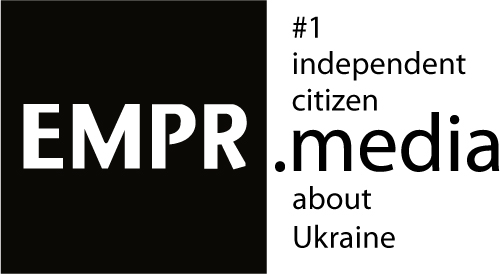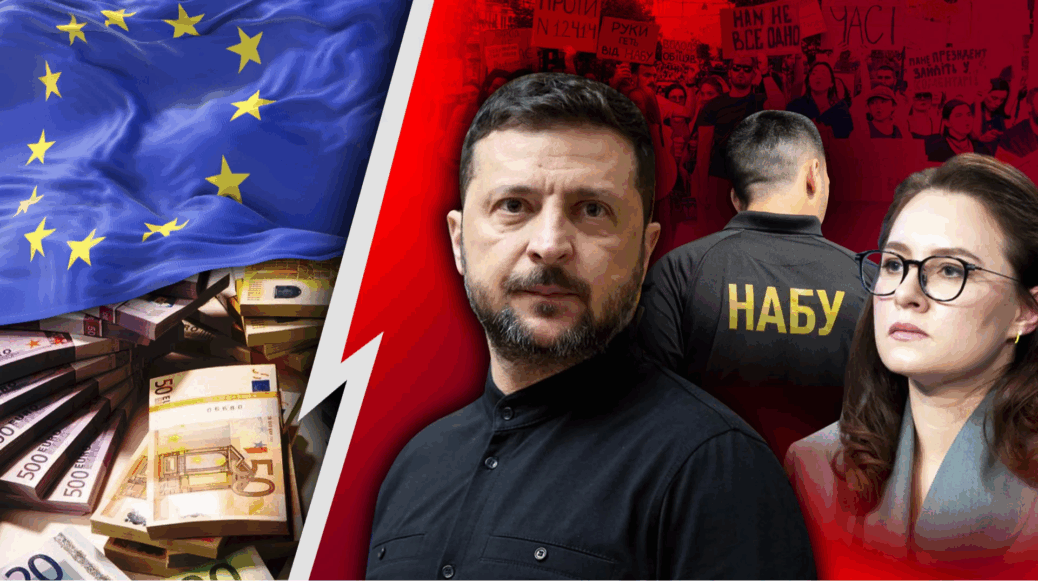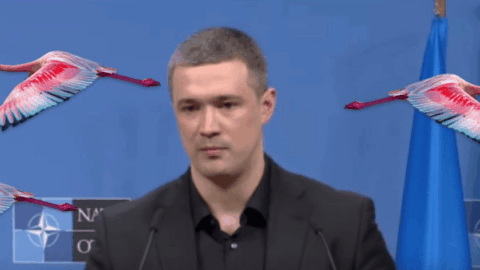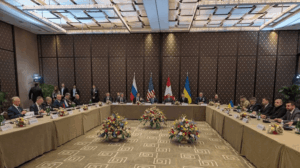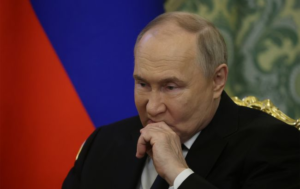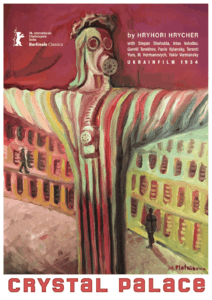Since the start of the full-scale war, Ukraine’s independent anti-corruption infrastructure has served as a kind of guarantee that the tens of billions of euros allocated annually to support the country would not be embezzled.
However, on July 22, 2025, the authorities effectively dismantled this safeguard.
As a result, the European Union has put all financial assistance to Ukraine on hold due to the undermining of the independence of NABU and SAPO. Is there a way out of this crisis, and what can we expect next?
EPravda reveals.
The strongest leverage
Ukraine is entirely dependent on external financing. Virtually all non-military state needs – such as funding for education, healthcare, or social support – are covered by international partners.
Since the start of the full-scale war, Ukraine has received $138.9 billion in financial assistance, according to data from the Ministry of Finance. The largest donor to the budget has been the European Union, which directly allocated $48.6 billion. An additional €8 billion ($9.3 billion) was provided by the EU through the ERA Loans mechanism – a loan secured by frozen Russian assets, under which Ukraine plans to receive a total of $50 billion.
Immediately after the adoption of the law restricting the independence of NABU and SAPO, the European Commission stated that the issue of suspending funding for Ukraine “is not currently being discussed.” At the same time, it acknowledged that certain “safeguards” do exist within the EU.
On Saturday, July 26, The New York Times reported that the European Union is reducing funding for Ukraine due to the adoption of the law limiting the independence of NABU and SAPO.
In reality, the reduction concerns the next tranche and is not directly related to the anti-corruption bodies but to the failure to meet a number of benchmarks from the first quarter of 2025. For instance, President Zelenskyy did not sign on time the law aimed at strengthening the institutional capacity of the Asset Recovery and Management Agency (ARMA), which is responsible for tracing, seizing, and managing assets obtained through corruption and other crimes.
As a result, the EU reduced the amount of the next tranche from €4.5 billion to €3 billion.
The situation is even worse regarding the benchmarks for the second quarter of 2025. According to Yaroslav Zhelezniak, deputy head of the parliamentary tax committee, between April and June, Ukraine fulfilled only 5 out of 11 EU requirements, which could lead to a further reduction of the next tranche by €2–3 billion.
The reduction of EU funding tranches is a predictable outcome – one that Ukraine knowingly accepted when the Ukraine Facility was launched in 2023. The core principle of the program is “money in exchange for reforms,” meaning that failing to meet the outlined benchmarks does indeed have financial consequences.
However, the program also allows for lost ground to be recovered: the EU can transfer the previously withheld funds once the missed requirements are fulfilled. For instance, President Zelenskyy recently signed the law on ARMA reform, so the funds withheld due to unfulfilled first-quarter commitments will be included in upcoming tranches.
However, none of this will matter if the Verkhovna Rada does not restore the independence of the anti-corruption infrastructure.
According to Ekonomichna Pravda, on July 24, EU representatives informed the Shmyhal government through diplomatic channels that they were suspending all financial assistance to Ukraine. This information was confirmed to EP by four independent sources in the government, diplomatic circles, and parliament. “Everything has been put on hold until the situation is resolved,” one of them said.
This primarily concerns the EU’s share in ERA Loans (around $20 billion that Ukraine had planned to receive by the end of 2025), as well as loans from the European Bank for Reconstruction and Development and the European Investment Bank. Sources also noted that funding under the Ukraine Facility could also be paused. However, from a purely technical standpoint, implementing such a threat may be much more difficult for the EU due to the lack of appropriate legal mechanisms.
Such a scenario can be prevented only if the parliament repeals the recently adopted amendments and restores the independence of NABU and SAPO from the Prosecutor General. The corresponding draft law has already been registered in the Verkhovna Rada by the President, and it is expected to be adopted on July 31 — in both readings on the same day.
What’s at stake
In 2025, Ukraine expected to receive €12.5 billion from the EU under the Ukraine Facility program and around €17.2 billion under the ERA Loans program. Altogether, that’s about €30 billion — a major portion of the projected budget deficit.
Some of the funds from the European Union have already been transferred to the government’s accounts. According to the Ministry of Finance, Ukraine has received €3.7 billion under the Ukraine Facility and €8 billion from frozen Russian assets. However, the majority of the funds the government hopes to receive from the EU have not yet arrived. This refers to about €18 billion through the two key financing instruments.
However, this is only the “tip of the iceberg,” as even more questions will arise regarding financing the budget gap in 2026. Even if EU funds are available, the government has no confirmed sources to cover a deficit of about $19 billion. Without EU money, the size of the “gap” could grow to $40 billion, an interlocutor familiar with the budget financing issue told Economic Pravda.
Revenues from other donors to Ukraine’s treasury may also be at risk. Primarily, there are problems with financing from the IMF. Even without adopting the law that destroys the independence of NABU and SAPO, Ukraine will have to negotiate a new loan from the Fund, as it will be unable to meet the requirement to reduce the budget deficit to 10% of GDP in 2026.
Currently, considering the recent legislative changes, negotiating a new IMF program will become much more difficult, if not impossible. Without an IMF program, it will be harder for the government to secure financing from other partners, including the governments of Japan, Canada, Norway, and others.
Thus, President Zelenskyy’s signature on the law subordinating the anti-corruption infrastructure to the Prosecutor General may cost the country over $60 billion in funding for 2025–2026. Receiving these funds is critically important for the state to be able to fulfill its functions and finance everything—from paying subsidies to servicing debt.
Despite such a high price for this mistake, there are still members of parliament who do not want to fix this situation.
According to EP sources in the Verkhovna Rada, a number of deputies from the “Servant of the People” faction supported limiting the independence of NABU and SAP for ideological reasons. Some did so because they themselves are subjects of anti-corruption investigations, while others feared that these agencies “collected information on who they should and shouldn’t.” Several other “Servants” were intimidated before the vote by the threat of criminal investigations opened by other law enforcement bodies more loyal to the President’s Office.
It is also difficult to find votes for restoring the independence of the anti-corruption infrastructure among deputies from other factions and groups. However, for all of them, it will be much easier to press the “yes” button than to later explain to their constituents why they are not receiving pensions or salaries.
What’s next
After a strong reaction from society and international partners, Zelenskyy submitted a bill to parliament aimed at restoring the independence of NABU and SAPO from the Prosecutor General. The Verkhovna Rada is scheduled to consider it on July 31. Western partners expect the law to be adopted in both readings at once, and for the president to sign it as quickly as he signed the law that caused problems for the state.
If this scenario comes true, Ukraine may not experience interruptions in EU funding, as the next tranche is expected to arrive in early August.
Going forward, the European Union will become more demanding of Ukraine regarding reforms. They expect the government to complete its “homework” on time and adopt other important bills, including:
- No. 13150 – on ensuring legality in the activities of local government bodies and officials;
- No. 13165-2 – on improving integrity declarations of judges and their family connections;
- No. 13107-d – on reforming the vocational education system;
- No. 9363 – on digitalization of enforcement proceedings.
Partners also expect the government to appoint the winner of the competition for the head of the Economic Security Bureau — NABU detective Oleksandr Tsyvinskyi. The government has not made this decision yet, citing “security factors” that have not been publicly disclosed.
Additional requirements may also arise during negotiations with the IMF. Publicly and behind closed doors, the fund has so far refrained from making harsh statements about Ukraine. Nevertheless, maintaining the independence of the anti-corruption infrastructure could become a permanent “milestone” in the IMF program, violation of which would mean Ukraine will not receive subsequent loan tranches. Moreover, the fund is likely to become more stringent in monitoring the government’s fulfillment of other requirements.
All this means that in the near future, the parliament and government will have to work much more intensively than before, as the willingness of partners to “turn a blind eye” to government mistakes and continue assisting Ukraine despite everything is running out.
Unfortunately, this increased scrutiny from partners will not translate into more effective work by the Verkhovna Rada. After the NABU and SAP scandal, some deputies feel betrayed, according to the head of one parliamentary committee interviewed by EP. Going forward, it will be much harder for the government and the President’s Office to convince deputies to support various initiatives.
“There is an opinion that the ‘Servant of the People’ faction will be incapacitated for the next one and a half to two months, and without ‘Servant of the People,’ nothing can be voted through in the Verkhovna Rada,” he noted.
Tags: Anti‑Corruption EMPR.media EU nabu SAPO Ukraine